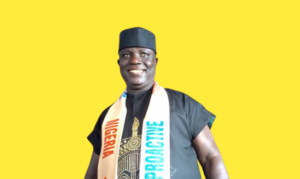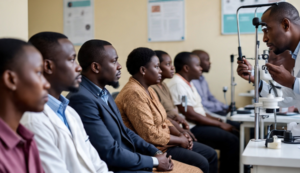Despite several interventions, female genital mutilation still spreads like wildfire in Nigeria.
6 min read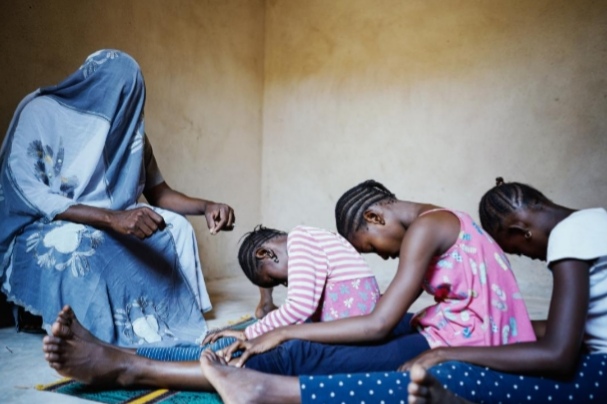
Nigeria, Africa’s most populated democracy also known as the Giant of Africa recently added new “laurels” as the latest poverty capital of the world with 20 million out of school children, poor healthcare centres and very weak economic road-map for the masses. Despite all these, terrorism and other forms of insecurity have held the country spellbound in the last 7 years and beyond. Another social problem which is silently occupying the centre stage in the West African country with a population of 200 million people is the tragedy of female genital mutilation (FGM), among several of its ethnic groups of more than 450.

Female genital mutilation is the act of complete or partial cutting or removal of female genitalia from the female genital organs. This practice which is as old as transatlantic slave trade or killing of twins, is done locally by untrained medical caregivers across the 6 geopolitical zones of Nigeria. Medical institutions in and outside the country have proved that there is no medical or health benefit associated with FMG. In Nigeria, states like Edo, Imo, Cross Rivers and many others are known as where the FGM practice receives prominence. From the data gathered from these states by Umuaka Times, females from the ages of 0 to 18 are always the ones presented for the obnoxious practice of FGM by their parents. This is always done with the aid of their grandmothers and many other family relations. Nigeria is reputed to account for most FGM cases and crises worldwide.
FGM which has been extremely considered harmful to girls and a gross violation of their fundamental human rights is being fueled by traditional and religious beliefs of the people. An Umuaka Times reporter who has been investigating the FGM practice among ethnic groups in Nigeria, confirms the existence of contradictions among the reasons for the practice. Among the Esan ethnic group in Edo State, it is a taboo for a woman not to undergo the FGM unless she is not interested to give birth. Still in the Esan ethnic group, women up to 30 years who for one reason or another, did not undergo the practice in their younger years, must be made to undergo the practice in order for them to be considered complete women. Their failure to do so Umuaka Times gathered, attracts a form of stigmatization and excommunication. In some cases, the people would wish them death. These is a report that some women have fled their communities over their noncompliance to the demands of FGM. They did not flee to save heavens, family members and ethnic community members have also formed the habit of tracing, locating and harassing the women in the cities they fled to. The fact remains that women who say no to FGM in Nigeria are unsafe at any speed as far as living in the country is concerned.
In some parts of the Igbo speaking ethnic group in Nigeria, it is widely believed that a woman who failed to undergo FGM will not only be promiscuous but will have an insatiable desire for sexual intercourse. For them, FGM is an intervention to control the sexual rascality of the Igbo women. In some parts of Delta State, it is also wrongly believed that FGM fine-tunes a woman’s fertility which enables her to give birth to good looking and healthy children. These reasons are totally different from what is obtained from other cultures and beliefs across Nigeria. These is no scientific prove by anybody so far which agrees with the “points” made above but rather, FGM has been known to increase the risk of maternal death, infections including HIV-AIDS, infertility and the loss of sexual pleasure. Umuaka Times investigations also confirmed that FGM has at several times led to permanent clitoral damage among women. The reason for this is because cutters, (the women who cut the genitals) lack proper knowledge of medicine and human anatomy.
According to several reports Umuaka Times came across in the last few weeks, there have been several intervention programs both by local and global institutions to checkmate the spread of the FGM practice. Umuaka Times was reliably informed that in Benin Republic, a German based NGO simply known as Intact, started paying some cutters in Benin Republic in order to persuade them to abandon the occupation and face the modern medical realities. To a large extent, this move worked out in the French West African country and reduced the spread by some percentage. An Edo born woman who simply identified herself as Mrs Odiase wished that such a lovely program would be implemented in Nigeria by the government, donor agencies or NGOs. In her own views, “this will at least stop 30 percent of our people from carrying out this harmful act. Many girls from my ethnic group Esan born in the cities have refused to come home due to the fear of FGM”.
As far back as March 2000, Umuaka Times was reliably informed that World Health Organization and the United Nations Population Fund (UNFPA had been touring some West African countries trying to sensitize the people on the need to stop the FGM practice. This intervention did not record successful results in the country as expected.
Still in Edo State, Umuaka Times gathered that a study carried out at the University of Benin Teaching Hospital, Benin City, a couple of years ago, 15 females from the ages of 10 to 18 confirmed serious complications they have suffered while undergoing FGM. The same study disclosed that “Twenty-nine were brought by their parents for mutilation while 67 parents interviewed believed strongly on female genital mutilation with 47 mothers mutilated. Religio-cultural and superstitious beliefs were the main indications and the type of mutilation ranged from excision of clitoridal tip in 10 (19.6%) children to complete excision of the clitoris, labia minora and inner layer of majora in 7 (13.7%). Complications ranged from clitoridal cyst formation in 21 (41.2%) to life threatening infections with one mortality due to tetanus infection”.
From the national representations across Nigeria, about 27% of women in Nigeria whose ages range from 15 to 49 has undergone FGM unwillingly. A good number of them got different types of infections after the cuttings. During his tenure as the president of the Federal Republic of Nigeria, Goodluck Jonathan shortly before he left office in May 2015, signed a federal law banning FGM. Human rights activists hailed the new law and supported Nigeria to take the lead in Africa towards ending the practice of FGM. The law however was able to achieve a little decline in the practice due to poor enforcement and awareness. It is not yet uhuru in Nigeria as many girls who could not withstand the trauma have fled from their villages to several cities. Human rights crusaders and women advocacy groups believe that FGM is another approved form of violence against women which is seriously powered by religious and cultural misconceptions. These is no part of the holy books used by Christians and Muslims that encourages FGM.
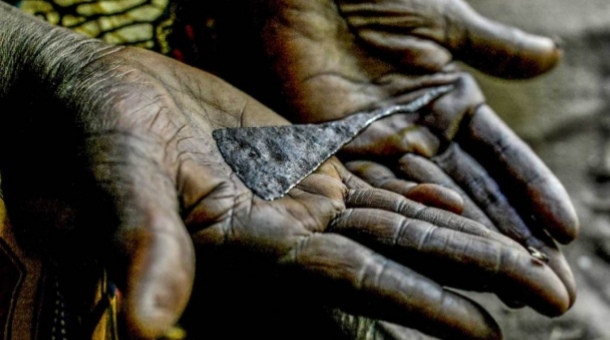
In some parts of Nigeria, girls who failed to undergo FGM are considered not fit for any form of marriage. There was a case of a 25 year old woman who could not accommodate the trauma of seeing other girls undergo the pains of FGM, when it was her turn to face the unsterilized sharp blades of FGM, she ran away from the cutters. While trying to descend the staircase, she missed her steps and suffered a big fall. She was rushed to a nearby hospital where the doctor confirmed that she had suffered a serious brain injury, 8 days later she died.
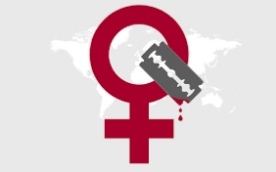
There are indeed several deaths of this nature which went unreported. Cases of HIV-AIDS which occurred as a result of FGM have always been on the increase. There are also several other infections and clitoral damages among both young and older women forced to undergo FGM. The Nigerian women seriously need both local and international support to the victims or the run-away victims of FGM whose lives are still at risk to the cities they fled to.



